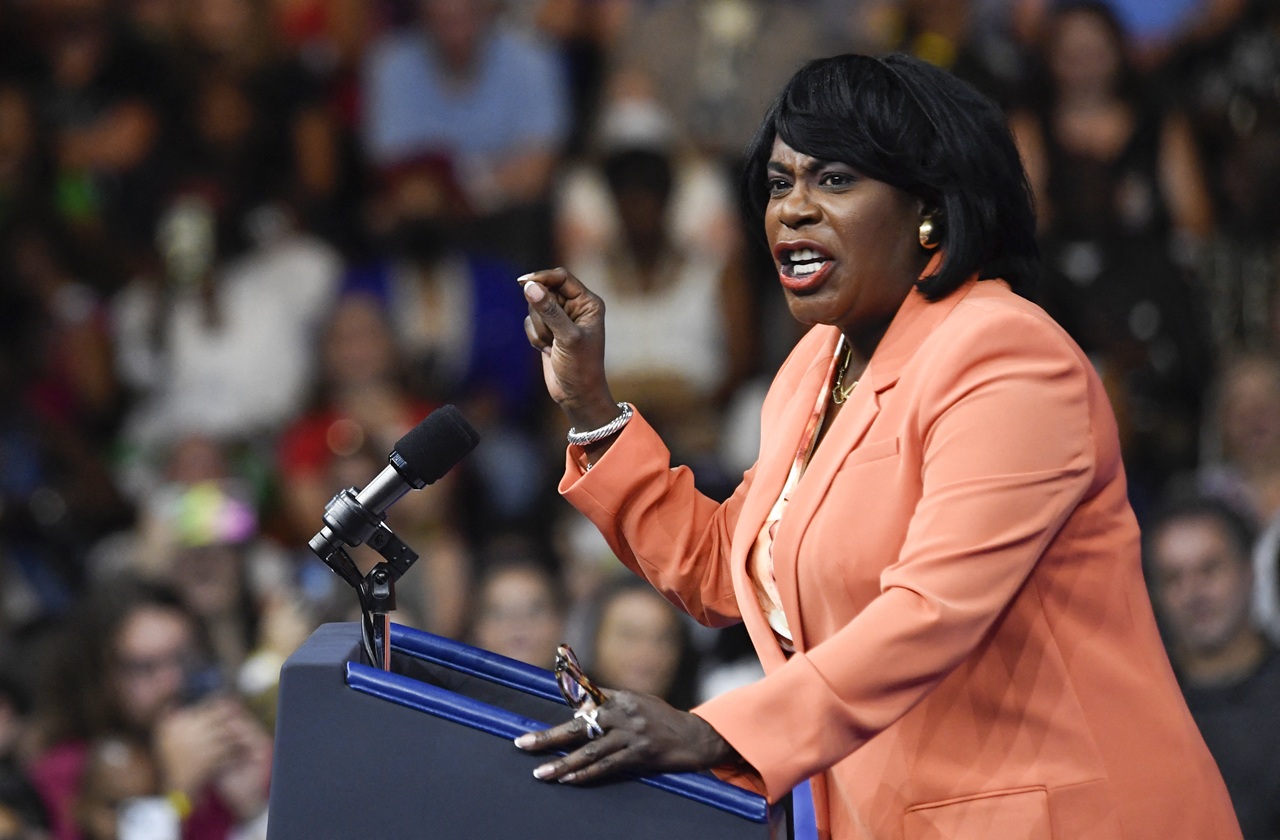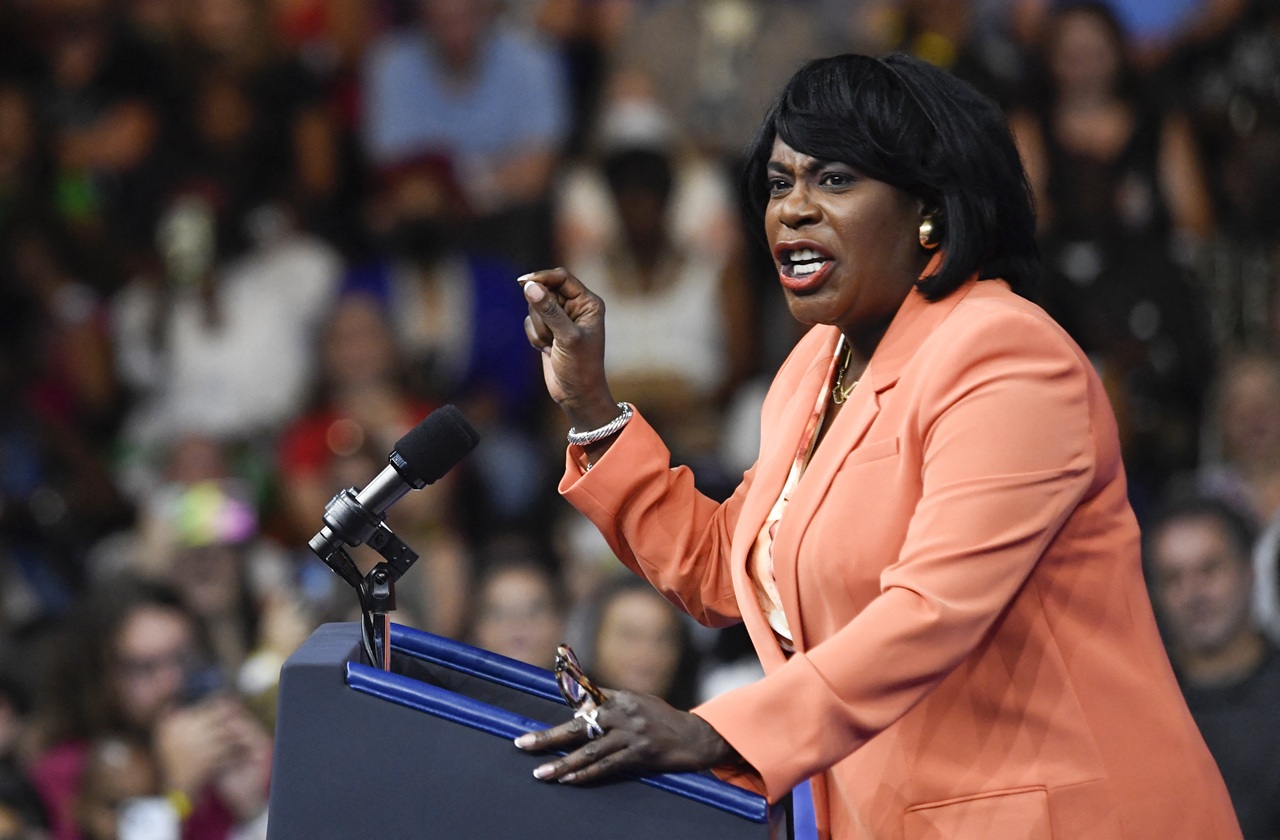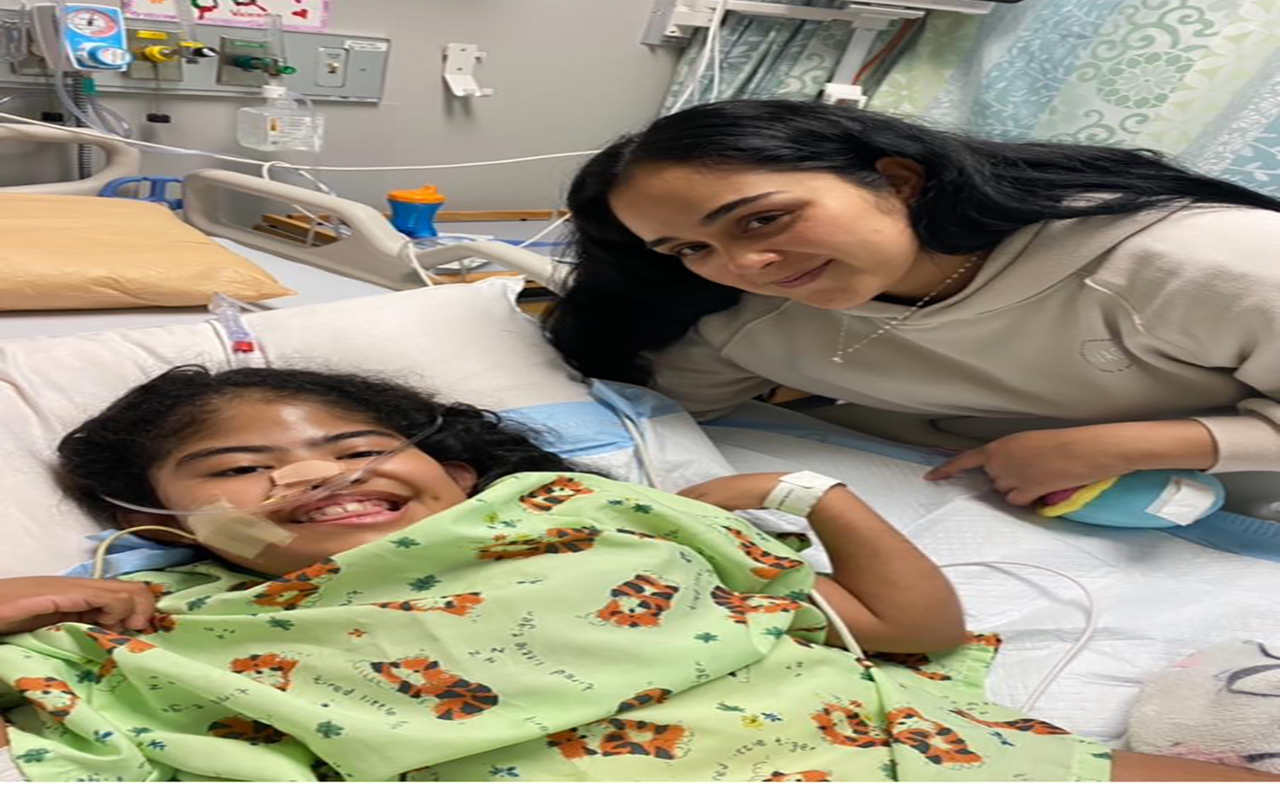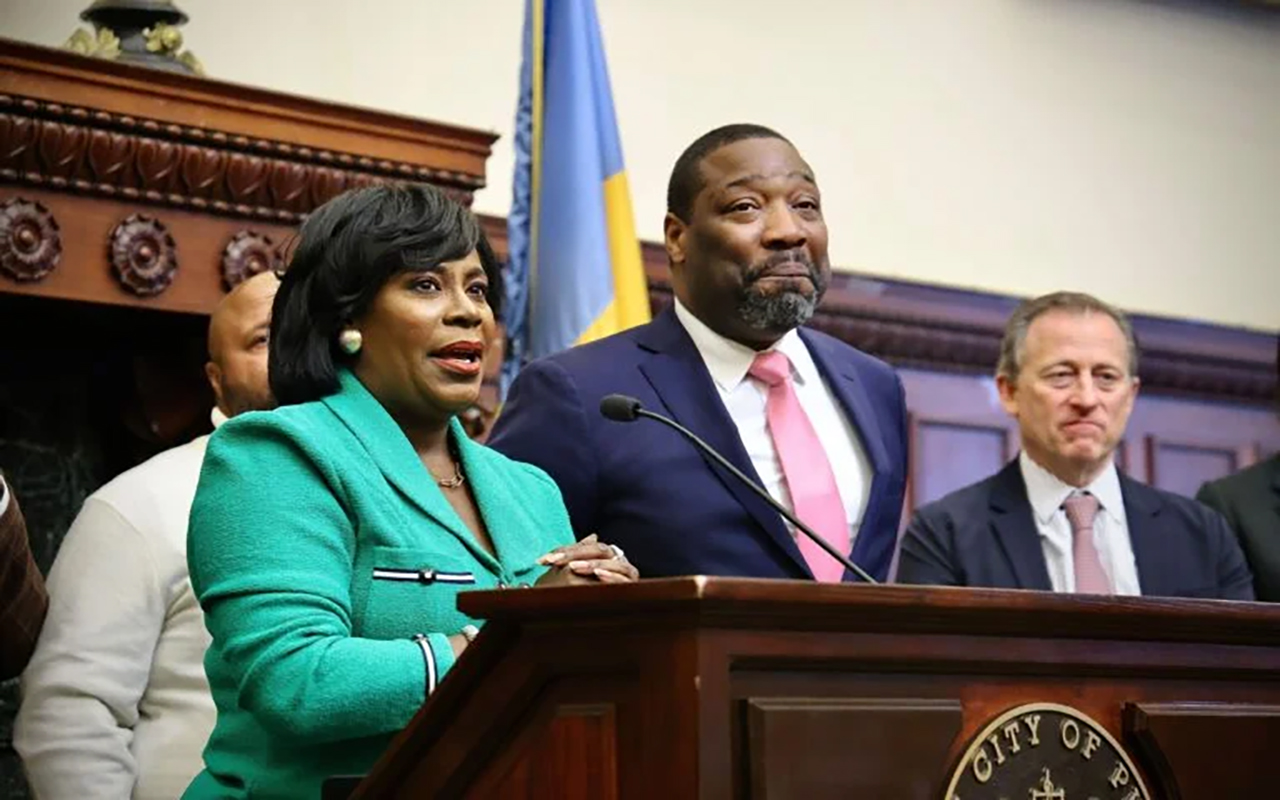After seven years in state government, Luz Colón is going back to her roots in 2023 with a City Council run
She is one of 29 at-Large Democratic candidates on the ballot, and has a long history as a public servant.
Throughout her 25-plus years in government, Luz Colón says she’s never forgotten her “stomping grounds.”
For her, that’s North Philly. First, it was near Temple University around Cecil B. Moore Ave. and then at York and Lawrence closer to Kensington.
Raised a “fighter”
Colón and her two sisters were raised there by a single mother in public housing, and like her own experience of arriving in Philadelphia from Puerto Rico with little to her name, she made sure her daughters were also raised to be resilient.
“My mom could write a memoir,” Colón told AL DÍA in an interview earlier this year. “I often wonder where my fight comes from, and it is definitely from her.”
That fight for Luz and her sisters started in school, where Colón’s mother stressed her daughters would work towards their own independence.
“That’s what she instilled in us,” Colón said, “to make sure we had our own and be strong in life.”
A young Luz took that approach to everything.
Outside of school, she grew into a skilled salsa dancer — once considering it for a career — and also enjoyed being a presence in her community alongside friends and neighbors. To this day, Colón still talks fondly of the old neighbors she encounters that remember watching her grow from a little girl at Ferguson Elementary to a burgeoning teen leader at Mastbaum and then a voice for her community at the city and state levels of government.
“The community remembers you in pigtails playing double dutch out in the street,” she said. “We weren’t rich… It was poor, but being very happy and being loved by my community.”
In school, Colón’s life-changing experience occurred when she encountered ASPIRA. Beyond building her confidence as a leader and community servant, it also eventually provided her first work experience in city government.
At the city
At 17, Colón walked into her first job at City Hall working for Manny Ortiz, who was then a deputy mayor under Ed Rendell. From there, she transitioned to working in constituent services with Philly’s first and only Latino City Councilmember Angel Ortiz, where her career in government began to flourish.
“That really broadened my horizons of community service,” Colón said of her time in the Councilmember Ortiz’s office.
It also forced her to learn Spanish at a more professional level — something she didn’t have while growing up — to better serve constituents.
“That was one of my first tasks in order to be able to connect with the community,” said Colón. “I was successful in it after lots of practice, lots of reading and lots of telenovelas.”
From Ortiz himself, Colón said she learned a number of key tenets of public service that she carries to this day.
For one, he showed her the necessary passion it takes to serve a community in his capacity as a City Councilmember. At the time, Ortiz was the only representative of Philly’s Latino community on City Council, so a majority of his work attempted to address its concerns.
To do that, Colón spoke to the power of listening as another learned skill to both remain connected to the community, but also take its issues to the city and brainstorm solutions with stakeholders from all over.
“How are we to know what is really happening in the world or in this community if we don’t really listen,” said Colón.
Leading GACLA
After Ortiz, Colón did similar work over the next decade-plus at City Hall with Councilmembers Blondell Reynolds Brown and Bill Greenlee before being appointed by Governor Tom Wolf as the new executive director of the Pennsylvania Commission on Latino Affairs in 2016.
Colón called the switch “bittersweet” because of the work she loved on City Council, but also saw the state position as an opportunity to take her passion for community service to the next level by working with municipalities across Pennsylvania.
In the role, her duty was to not only direct a group of more than 20 commissioners from across the state, but also be the go-to person for the governor regarding any issues pertinent to the Commonwealth’s diverse Latino communities.
The issues were dense and often required collaboration between the Commission, other state departments and the affected communities. Colón called the work “a lot,” but also “gratifying” for the impact it had.
She saw victories regarding things like language access and maintaining her roster of commissioners throughout her tenure as executive director, but Colón was also honest about the learning curves. Specifically, she admitted to having trouble connecting with PA’s migrant Latino communities that often didn’t trust the government no matter what form it came in.
“I’m a Latina. I’m coming into their community, and they’re looking at you like: ‘I got my guard up,’” Colón said. “The goal was to have and build a relationship in which this community can trust me.”
Some specific instances where Colón helped advise the state’s response include the influx of Puerto Ricans to the state in the aftermath of Hurricane Maria in 2016 and the COVID-19 pandemic. After Maria, a number of PA communities began to need Spanish-language services for the first time, as large numbers of Puerto Ricans arrived as new residents, escaping the hurricane’s destruction. During COVID, the Latino community was one of the hardest hit by the pandemic, and the need for correct, translated material was paramount.
When Wolf’s administration began winding down in 2022, Colón finally had a chance to review her 25-plus years rising the ranks of government, and came to the conclusion to return to Philly in a time where her community needs all the leaders it can get.
Colón’s council platform
As the city election cycle ramped up, Colón threw her hat in the at-Large City Council race, where she is now one of 29 Democratic candidates. She’s hoping to separate herself from the pack with a message of experience and collaboration.
RELATED CONTENT
“This is the opportunity now that we’ve done this work to be able to pull legislation, to be able to work with our stakeholders, our community leaders to say: ‘Ok, how can we be able to come together as a united front?’” said Colón.
In terms of issues, Colón’s top priority is public safety.
“It’s alarming,” she said of the crime, specifically in communities like hers, along with other issues like trash and more.
As for a solution, she preached the same unity that sits behind her whole campaign. It would do everything from bringing stakeholders with different solutions together to break the neighborhood bubbles of service and expand some ideas on a citywide scale.
“If we come together with groups that do care about the cause, perhaps we can move that needle forward,” she said.
Colón also mentioned using her connections at the state level to bring more resources to the city’s most-affected areas. On enforcement, she put the emphasis on cracking down on gun access, which would require more state and federal help to put safeguards in place.
When it comes to opioids, Colón also said more state and federal help was necessary, and wants to provide more mental health support to those addicted and traumatized by the environment.
On safe injection sites, Colón was not in favor.
“I’m not a big fan of that,” she said.
The other two parts of Colón’s campaign are titled ‘Economic Opportunity’ and ‘Schools That Teach,’ and they address the city’s economics, especially in its Black and Brown communities, and the fight to build a more sustainable, equitable school system for Philly.
AL DÍA asked Colón what the city could do to help more of its Black and Brown entrepreneurs and small businesses, and she said not only could more funding be provided for them, but also mentioned that the actual CFI and CDFI institutions distributing the funding need more cultural training to interact with some businesses.
“If we can meet them halfway through that threshold to help and fund them, I believe we can help these businesses flourish,” said Colón.
On schools, Colón is in favor of providing more vocational education opportunities to students as a graduate of Mastbaum (in auto mechanics) and finding a way to pay higher salaries to teachers and educators across the city.
The primary election in Philly is on May 16.

This content is a part of Every Voice, Every Vote, a collaborative project managed by The Lenfest Institute for Journalism. Lead support is provided by the William Penn Foundation with additional funding from The Lenfest Institute, Peter and Judy Leone, the John S. and James L. Knight Foundation, Harriet and Larry Weiss, and the Wyncote Foundation, among others. To learn more about the project and view a full list of supporters, visit www.every voice-every vote.org. Editorial content is created independently of the project’s donors.











LEAVE A COMMENT: